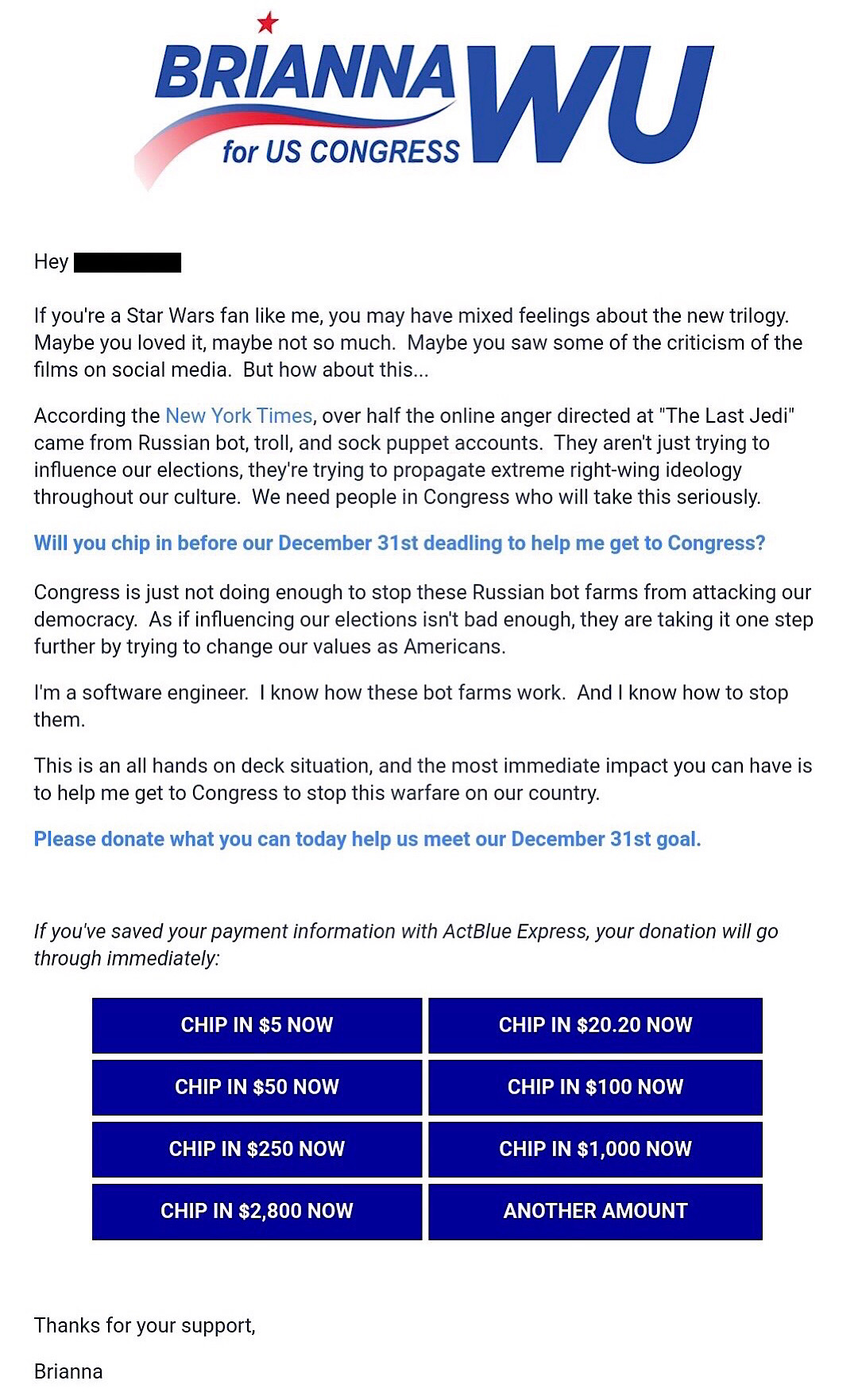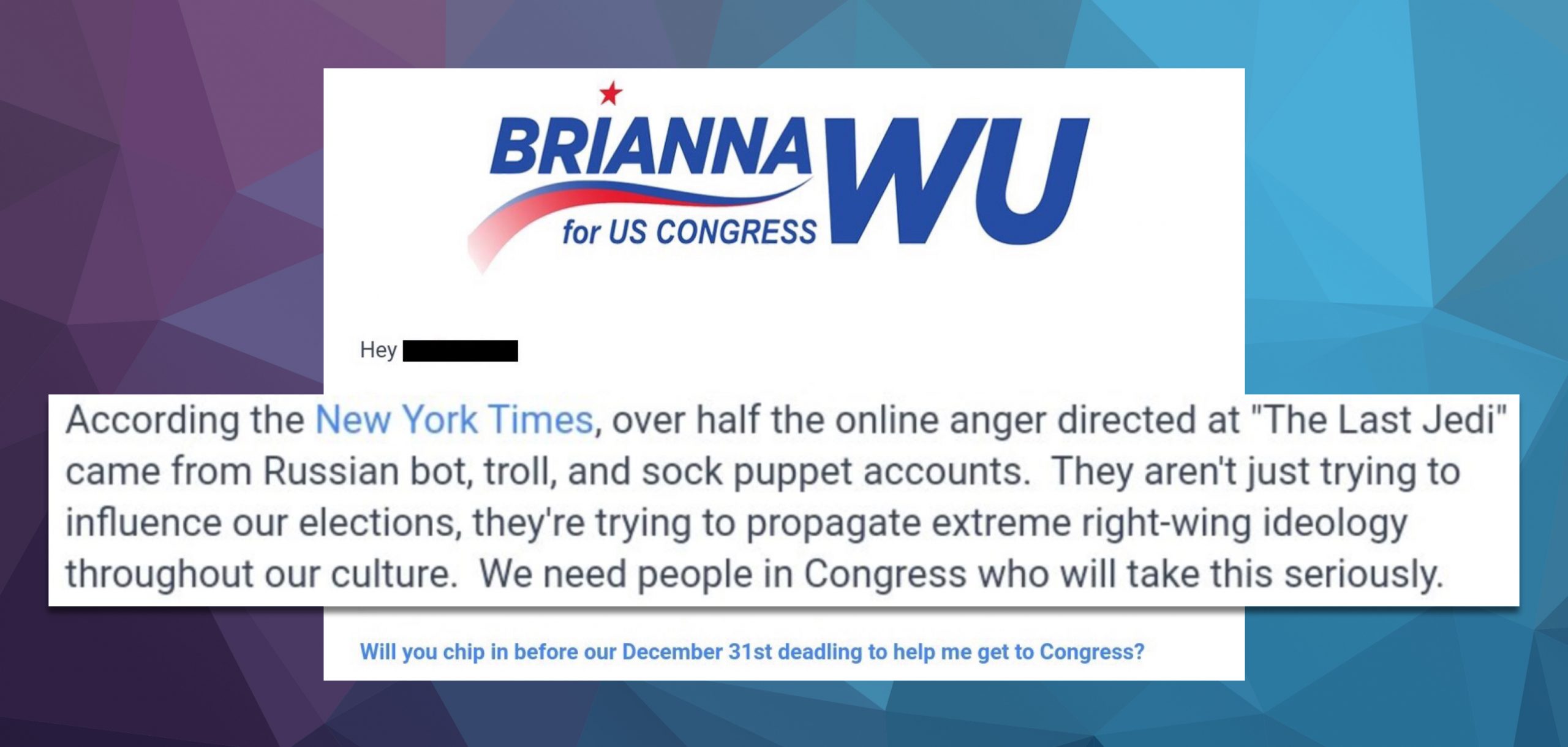Yesterday, candidate for the US House of Representatives Brianna Wu tweeted to her 90,000+ followers, the debunked myth that over half the online anger directed at Star Wars: The Last Jedi came from Russian sock puppet accounts. Today she repeated the myth in an email that was sent to her mailing list and used it as a vehicle to solicit campaign donations.
In the email, Wu writes that “over half the online anger directed at “The Last Jedi” came from Russian bot, troll, and sock puppet accounts.”
As we reported yesterday, this claim is an incorrect extrapolation of a statement published in a recent opinion piece from The New York Times which said “over 50 percent of the venom directed on Twitter at Rian Johnson, director of ‘The Last Jedi,’ came from the same sources as Russian election meddling.” The claims in this opinion piece from The New York Times are based on a thoroughly debunked UCLA paper whose author has since walked back the original claims.
The original UCLA paper claimed that “50.9 percent of negative tweets about the movie were politically motivated and not even human.” When the author walked back the claims, he said that actually only 16 of the 967 Twitter accounts analyzed in the paper were suspected Russian bots. The study only focused on tweets that were sent directly to the movie’s director Rian Johnson and weren’t representative of the “online anger” the movie received across social media as a whole.
Wu then goes on to claim that Russian bots are “trying to propagate extreme right-wing ideology throughout our culture” and uses this as an introduction to her pitch for donations:
“Congress is just not doing enough to stop these Russian bot farms from attacking our democracy. As if influencing our elections isn’t bad enough, they are taking it one step further by trying to change our values as Americans.
I’m a software engineer. I know how these bot farms work. And I know how to stop them.
This is an all hands on deck situation, and the most immediate impact you can have is to help me get to Congress to stop this warfare on our country.
Please donate what you can today help us meet our December 31st goal.”
 Wu’s claims are the latest example of a public figure calling for a crackdown on misinformation while spreading misleading information themselves. In November, filmmaker Aaron Sorkin published an open letter asking Mark Zuckerberg to correct fake news which itself was full of inaccurate statements.
Wu’s claims are the latest example of a public figure calling for a crackdown on misinformation while spreading misleading information themselves. In November, filmmaker Aaron Sorkin published an open letter asking Mark Zuckerberg to correct fake news which itself was full of inaccurate statements.













